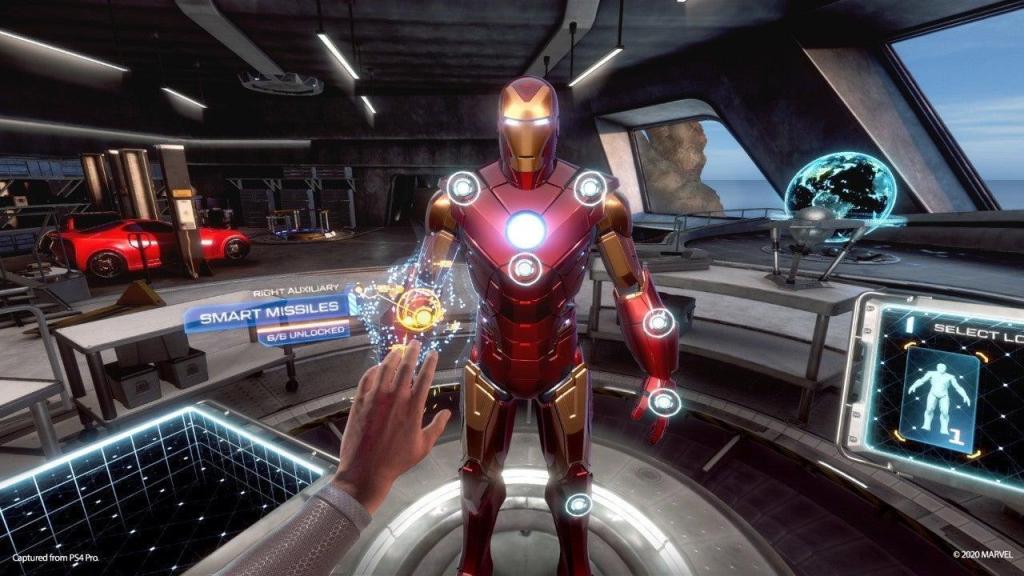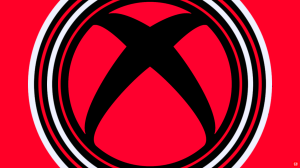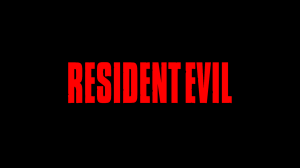We recently got to sit down with some of the minds at Marvel Games and Marvel’s Iron Man VR developer Camouflaj. Marvel Games has been really changing the way superhero games operate in the last decade. It used to be that a superhero game would release to tie-in with a movie or one publisher held the keys to a number of really beloved characters. The likes of Activision and Sega really dominated the Marvel video games, but that began to change as these companies focused more on their own original IPs and move tie-ins began to fade away.
Videos by ComicBook.com
Iron Man VR came out in 2020, so people are already fairly familiar with it, but it recently expanded to a whole new audience. It was one of Marvel Games’ attempts to branch out from movie tie-ins and tell a unique, premium story in a video game, but with an even greater twist than other games: it’s in virtual reality. The game recently released for Meta Quest 2 and is being incredibly well received by users of the headset. So, we sat down with writer Brendan Murphy, Director of Production at Camouflaj Matthew Walker, and Marvel Games VP and Creative Director Bill Rosemann to talk about how the game came to be, how Marvel Games is apporaching every title, and much more.
This interview has been lightly edited for clarity and length. Bill Rosemann’s interview was conducted separately from Brendan and Matthew’s.
So, how did you guys get your swing at Iron Man?
Brendan Murphy: The short answer is we created a really great demo. The long answer is, and this is probably a story that Ryan Payton, the creative director, could tell better. I’m kind of relaying a story that happened to him, but that he went down and talked to the VP at Marvel, and they had played Republique, which had been put on VR and was wondering if we were interested in making any of their superheroes into a game.
And Ryan’s first thought was Iron Man, and I think that their response was, “Okay, no, more down to earth. Somebody… Lessen that pantheon of superheroes. We will license that one.” And Ryan made this bold promise that he would return in a week with a great pitch and a great demo, and he did just that. We had a guy in Troy who found the fun of flying in VR almost instantaneously. And so, we brought that down to Marvel in LA and let them play it and pitched to them our campaign idea, our story idea, and that’s how it took off.
Obviously, Republique was not a VR game, if I remember correctly. It was just a regular traditional game. In hindsight, VR Iron Man makes sense, but you guys hadn’t done that yet. So, what was the mindset between we’re going to do VR for this as opposed to a third person action game?
Brendan Murphy: Well, we’d been tinkering around with VR, and it’s still undiscovered country, and especially for a long campaign-driven game with a really robust story. So, we had put together some sort of experiential things in VR before. And this felt really good, and we saw it as the future. And also, just nothing could replace that immersion that you get from flying around in first person VR as Iron Man, that just wouldn’t be as fun on a flat screen.
What are the challenges and freedoms that are presented to you when writing a VR game over a traditional video game?
Brendan Murphy: I think one of the cool opportunities is everything is so much more immersive. The flip side of that coin is you can’t have traditional cinematics. You can’t have shot composition, and you can’t have the music swell at a certain moment and insert shots of a hand reaching out to grab something and all the things, all the language of cinema that makes things very exciting to watch.
But the good opportunity of that is that, yeah, there’s no better way to make you feel like you’re inhabiting this world, and the characters feel very real. And so, when you do something super heroic, like rescue somebody off the tire of a plane, it has a way more oomph than it would have if you were trying to do that in a flat screen game.

Yeah, and you can’t cut away to a different character, right? So if you need to tell something else, you’re locked to Iron Man.
Brendan Murphy: Yep, yep. Yeah, a lot more opportunities for environmental storytelling. One thing that we found, and we’re still learning, and I think everybody who makes VR games is still learning, for me, I find that what would be a cut scene feels twice as long. So if it’s 30 seconds, if it feels like a minute, because you don’t have, in a two-way conversation, the cutaway to the other person talking. You’re watching them when they’re talking, but you’re also watching them when they’re listening to you, the player character talk. So, we have to be mindful of how long those scenes run and find other ways to compose and frame shots in a way that really lives up to the hardware and also to what VR is all about.
What did you want to do to distinguish your Tony Stark, not just from Robert Downey, Jr., obviously, but we’ve had the Midnight Suns version, the Marvel’s Avengers version. Obviously, there’s a lot of Iron Man out there and a lot of voices. What did you want to do to distinguish yours?
Brendan Murphy: Yeah. I mean, with RDJ in particular, there was no sort of escaping the shadow of that. And so, if I can pay a compliment to Bill, they said, “Well, don’t try to do that. We don’t want an RDJ impression. We don’t want you to try to create something that has to tie directly to the MCU or anything like that.”
And so, it was kind of liberating because we knew that was there, but we didn’t have to focus on it, and we could go back to the comics, in the comic arts, that we really loved and approach it anew.
Bill Rosemann:
The thing that we realized that Iron Man is up there worldwide as one of the most popular heroes, which wasn’t always the case. It’s always like Spider-Man and a couple characters from our distinguished competition. Now Iron Man is up there. Spider-Man, Iron Man, Wolverine. So we know that Iron Man is up there. That is the challenge. What do we do new? And so I think our goal was let’s look at everything. Let’s look at decades of comics. Let’s look at… I love the old Iron Man cartoon from the late ’60s, and what can we learn from that? “Oh, what a theme song?” Tony Stark makes you feel he’s a cool exec with the heart of steel. “Okay, they’re onto something. They’ve boiled it down. They boiled it down, they got it.” Because it was Stan working on it.
So we look at everything and we say, “Here’s what people may know, but how can we surprise them by using characters, storylines that they haven’t experienced before? They may not know what Living Laser is. They may not know that Ghost was originally an Iron Man foe. Not to give any spoilers, but there’s versions of Iron Man that you see in the game that only appeared even recently in the comics that we may as well invent it. People don’t know where it came from.
So that’s our power and responsibility. We’re able to look at everything. And our responsibility is we’re given the freedom to combine and mash up, and we’re not beholden to any one continuity, what we care about Marvel Games not so much continuity. It’s character. Do we get the character right? We are lucky we’re able to look at decades of Iron Man content and we’re given the freedom to pick the greatest hits, the best of and put it together for our story and our responsibility is to be true, be true to the character, be authentic, and ultimately deliver the best game and experience possible.
How do you balance what you do pull from the MCU versus what you make up on your own? Because I’ve noticed his house is very similar to the one I think from the movies, and his personality is… There was never a voice for Tony Stark outside of a few cartoons or whatever in the ’90s and stuff.
Brendan Murphy: Yeah, I mean, all that stuff now is so shot through with one another. The MCU informs the Comics. The Comics informed the MCU, obviously. So yeah, we were able to draw inspiration here and there. It wasn’t so much that things were off limits, it was just we had an eye on what would look best in VR.
Gunsmith is, as far as I know, an original character. Is that correct?
Brendan Murphy: Yeah, yeah. There’d been some AI Tony, some holographic Tonys before, especially pretty recently in the last 10 years or whatever. But yeah, Gunsmith was an original character.
Yeah, it’s like an amalgamation of maybe Ultron, the AI, the Riri Williams stuff, J.A.R.V.I.S. How did you come up with this version of Gunsmith?
Brendan Murphy: Yeah, Gunsmith was a confluence of a few cool ideas. One, the opportunity for VRs, it’s like that first-person immersion. The only downside to that is you have this really larger-than-life character in Tony Stark, and how the hell are you going to show him on screen? So, by creating this AI version of him, we were able to get some Tony on screen, and I think that went a long way.
We also really wanted to focus on Tony’s past. He’s a futurist. He’s like barreling headlong towards his future, and he’s got this unbridled optimism about using my intellect and my check and everything, and I’m going to save the world this way. And he had never really reconciled with his past, and that’s what the villain of Ghost is all about. So AI Tony a.k.a. the Gunsmith kind of represents all that. He’s got all of Tony’s intellect and ambition, but it’s unchecked by a moral compass. And so, he’s the reckless, dangerous version of Tony Stark, and that gave us this opportunity to have an angel and devil on the character’s shoulders in this tug of war for Tony’s conscience and Tony’s soul.
And then, I’d say the last thing about Gunsmith, I personally have always liked to just take something that’s a trope or archetypical in a video game and just turn it on its head. And everybody’s played a game with a Blacksmith character before, and they’re always dependable. They’re always the person you go back to, and they’ll help you forge your weapons and craft tools and stuff like that, but they don’t really have much of an arc. They don’t ever change.
And so, the opportunity with Gunsmith was to tweak that a little and say, “Well, what would happen if this always reliable static character in the hero’s life started to go rogue and develop weapons of his own for you?” And so, the precision weapons, like repulses and stuff, start to get replaced by bombs that have a lot of collateral damage and everything else. And before Tony realizes it, Gunsmith is kind of building for himself, and building his part of his original protocol. So, it was a chance to explore taking a classic trope from a video game and letting that character have an arc, like a negative arc.

It seems like this game has resonated more with the Quest version. I’ve noticed more positive review scores, I feel like, and people are picking it up more, obviously, I think more accessibility with the Quest than a PlayStation. You have to have a console and the headset on PlayStation. Is that something you guys are noticing too, or am I just hallucinating this?
Bill Rosemann: I would say we love both versions. And it’s just a case of different technology. I would just say going into both versions, we were aware of the different technology and the experience and tried to make it the best experience for that platform. Hey, whichever you have, whichever you enjoy the most, man, suit up and be Iron Man.
Matthew Walker: Yeah, absolutely. I think you’re right. And we’re so lucky that we got this opportunity to put it on the Quest. Certainly if you look at reviews, you can see that some of the stuff that people talked about before, some of the things that people considered negatives were very much like, “Wow, it’d be great if I could have this as a wireless experience and not have to worry about get tangled up in cables and so forth.”
And then, we have some independent tracking for the hands so that I don’t have to worry about accidentally turning in a weird way, and then it doesn’t get tracked, right? A lot of that technical stuff. And it’s interesting because considering that this is a big narrative call, it’s really interesting because story-wise too, we’re getting so much praise for the story and the reviews that I don’t feel like we quite got as much.
I remember, in fact, when we were looking at reviews for the game, when we decided to port it, just refreshing on how people felt about the story before. We saw some negative comments about this, that, or the other thing. Sometimes the clips from Tony and stuff. But yeah, this time it’s all been very glowing, especially about the story as well, so I know I’m really excited to see that, and I’m really happy to see that.
By getting this opportunity to put it on Quest, we’ve really given this title a chance to be out in the spotlight again to show people like, “Yeah, look, this VR experience is really cool.” And it’s really something you can’t do without being VR. You can’t experience this story and this flying the way it is without being a VR.
That’s really smart. What you were saying though about people maybe appreciating the story more this time, I have to imagine if you are getting tangled in wires and you are getting frustrated with just technical stuff. It takes you out of the experience, a very immersive experience. It’s robbing you of that. So I have to imagine, yeah, that does probably play a factor.
Matthew Walker: Oh, absolutely. That’s a really great point. Well, and so we were lucky that because the Quest has this great solid-state drive on it, the load times are so much better. Sometimes, I think we had average load times on PlayStation 4 of 50 seconds, but the average load time on Quest is six seconds. And so, I think you’re right that there’s an experience thing here where if you don’t have to wade through a lot of waiting and stuff, that you’re able to keep yourself immersed. Whereas, if you have to sit there and wait for 50 seconds and do nothing while this thing loads, you’re right. I think that certainly changes your disposition on how you’re dealing with stuff, right?
I was reading about the development of the game on Wikipedia to make sure I didn’t ask any questions that have already been asked or done to death, and someone put in there that this game is connected to Marvel Spider-Man, and I don’t know where that came from. I don’t know if you have anything to add to that?
Brendan Murphy: Yeah, I mean, it might be advisable that I say no comment, to be honest, that’s above my pay grade, although I will say that when we were developing the game, it was being worked on right after the success of Insomniac’s Spider-Man. And we were working with the same good folks over at Marvel, and there were little Easter Egg things that existed in Spider-Man that we were able to put into our game.
But in terms of MVCU or MGCU or whatever, I don’t know, there’s not necessarily a larger plan for that, but yeah, there are some Easter Eggs in our game that speak to what happens in Spider-Man.
Bill Rosemann: Here’s our philosophy, we want to give our collaborators freedom. We don’t want to paint them in a box. We don’t want to say, “Oh, you’ve agreed to make an Iron Man VR game. It’s going to take you years. You’re going to live with it and make it yours.” But then we’re going to say, “Well, Tony can’t have a Malibu mansion because in this other game by another studio we blew up California.” That’s not fair. So we want to say to everyone, “Hey, You know the multiverse?”
And this is something that is great, over the last eight years, only us comic book fans knew about a multiverse. Now, I mean, the world gets it. “Oh, there’s other realities. Okay.” They’re cool with that. So we like to say each game is its own reality, but it’s a Marvel reality. So there are certain things in all the games that we say, “Here’s all the locations, people that are in the shared Marvel reality.” If you’re in a Marvel reality, you expect the Daily Bugle. You expect Roxxon, you expect maybe Hydra, Shield, things like that. But then within that, you have freedom to tell your story… if you want to blow up the moon, let’s talk about it.
Now if there are… how can I say this? People know each other. If they want to work together. Or sometimes we’re like, “Hey, oh, do you need a logo? Roxxon logo, Daily Bugle logo. Hey, here’s one we created. Here’s one we have. It’s either from the comics or we’ve created.” Or, “Oh, this other game has it, and are we cool working together?” So some of it is yes, each game stands alone. If you’re playing and you want to see connections, there’s a scene in Guardians where you hear things. But I like to say, “Hey, that’s the multiverse coming through.” So that’s how I approach it. The Marvel Games, if you want to call it the Marvel Games Omniverse, the MGO. Each game is its own reality.

Speaking of universes, James Gunn recently stated that they want to integrate games into their cinematic universe over at DC. I don’t know if you’ve seen this, but I’m curious, Bill, as someone at Marvel Games, what do you think of something like that? That’s obviously very different from your guys’ approach.
Bill Rosemann: Yeah, I mean, that goes back to when my boss Jay Ong reformed the Marvel Games team. He assembled it. We’re over eight years now of this current team. And from the very beginning, we just sat down and talked about what do we believe in? What are our goals? What are our pillars? And we talked about there’s many ways you can do it. And we talked about, “Hey, there was a time, it’s just how the industry was that games were tie-ins to other things. The movie of the game, that’s what you did. And that’s what people wanted.” When we got together, we said, “You know what? I think we’re in an era where people just want the best game, period.” And we were given the freedom of, “Hey, don’t feel pressured to make this fit in between individual issues. Do your thing.”
Now we work very closely with our friends at studios, and where we mostly do that in a tie into to the Marvel Cinematic Universe is in all of our mobile games, you’ll see when a movie hits, we’ll have content. And then also in our console games, we will have costumes that are taken from individual movies. But again, at Marvel, we want to give everybody the freedom, publishing, studios, games. Everyone has freedom, everyone tells their stories, [they] talk to each other so we don’t accidentally duplicate something or talk to each other so we can maximize our working together.
And that’s where you see, “Oh, cool, that’s the costume from that movie in this game. Wow, that’s awesome.” But that is our goal. Everyone does their own thing, stays connected, stays in communication. When we can deliver things to the fans that they want to see from each individual, a pillar of storytelling. But again, it’s all about freedom. Create the best game in the time you need to do it and don’t feel constricted. But hey, there’s many ways to do this. I wish everyone the best.
I know you’re not going to announce anything right here now, but do you want to do a sequel to this?
Brendan Murphy: I mean, yeah, like anytime you develop any game or story or film, you’re imagining a larger arc. How can you take these conflicts and these characters and put them into a different setup. That’s not to say we were ever thinking about developing a sequel. It just means that we always wrote to the idea that there is somewhere these characters can go, that all hasn’t been said about them in our Iron Man Universe.
Bill Rosemann: Hey, man, never say never. I’ll say this, and I’m not revealing anything, spoiling everything. Again, when Jay Ong was putting together our team, the idea he always said to us is, “Are we helping to make games? Sure. But what we’re really doing ultimately is we’re making relationships in an honest way. We want to work with collaborators, whether we come to them or they come to us. Hopefully we sync on how we think and what we think about Marvel, about what we deliver to the fans, to the players. And we don’t want this to be any game. We don’t want it to be one and done. We want to have an ongoing relationship.”
And that’s taken from the history of Marvel. You want to work with creators and not just make one comic and have a run, and then maybe leave that book and you go away and you come back for another character, whatever. But the Marvel way is always that we want to work with great creators for as long as they want to work with us. Anything could happen. If the fans demand it, if the planet is aligned, there’s many Iron Man VR stories to tell. So who knows? That’s above my pay grade. But if it happens, I’m ready to work with Brendan and Ryan again to kick butt.
Matthew Walker: Oh, I love it, man. Yeah, no, I mean, obviously, we’re not working on anything right now, but that would be cool, right? That’d be sweet if there’s enough interest and from all kinds of people, be it fans in Marvel and whoever, that for us to be able to come back and do even more, that’d be really cool, man.
I guess for now, I can tell you I’m really looking forward to whatever is going to come out of that new Iron Man game that was announced. That’ll be really fun to see, especially knowing that, especially now that this game has been received well again and for real this time. Yeah, I’d be really curious to see what they end up doing.
Do you have any things you’d want to see or words of wisdom lessons learned that you’d like to offer the team at EA Motive for its Iron Man game?
Brendan Murphy: Just that they don’t have to carry the weight of everything that came before it, especially the character-defining work that the MCU did with Robert Downey, Jr. Be bold and chart their own path.
Matthew Walker: I’m looking forward to finding what they do, are they going to make it narrative heavy? What kind of action are they going to have? That kind of stuff. It’s going to be great to see.
Bill Rosemann: I would just say something that served us very well, and this is for any creator in any medium working with Iron Man, is approach it from the human out. Stan Lee said, “We’re going to put the human in the superhuman.” And at the time in the ’60s, it was revolutionary and it flipped over tables and it shocked people. Now we’re very accustomed to it, but I’m always like, “Never forget that very revolutionary, rebellious thought of, yes, is this character wearing a costume? Yes, but they’re a character, they’re a person. Why are they wearing it? What would push someone to put on this suit and go do this?”
That’s the engine that drives everything, that drives the action, that drives the plot, that drives the experience. That’s the Marvel way. Can you relate to the person? Who are they? Why must they do what they do? Who are the villains? Why do the villains feel they’re right and only they can do what they do? What is putting these two people on a collision course? If you can get that, if you can let people get connected to the character and love the character like we do, then everyone will go along for the ride. Again, you can have all the big action and epic scenes and all the things you want for Iron Man, but always remember Tony Stark. Let that guide you.
What other Marvel heroes do you want to get the VR treatment and why?
Brendan Murphy: I mean, anything that involves acrobatics and flying, Spider-Man comes to mind. I’d love to web sling through a photorealistic Manhattan in VR. That’d be fricking amazing.
Matthew Walker: I’ve been going through recently watching Phases One and Two of the MCU again, and one thing that I’ve been thinking about is how cool it could be to have VR Doctor Strange? With all the portals and stuff and just all this really cool magical stuff you could do. I feel like at VR, you could make an experience that would just be mind-blowing. Yeah. The idea of stuff popping in your face. I mean, obviously Doctor Strange can be horror, it can be any genre really. There’s no limits to what a Doctor Strange game could look like.
Bill Rosemann: Oh, gosh. We talk about it all the time. And there’s always the challenge of, there’s some characters that work… Number one, Iron Man was like when we first started talking about it, we said, I mean, this is years and years ago, we said, “If we’re ever going to make it a VR game, what’s number one?” Everyone was like, “Iron Man.” You put on the helmet, you put on the VR, and that’s the ultimate go-to fantasy.
Are there other characters that could work in VR? Yeah. And it’s just, do they work in VR? What is the wish fulfillment? Some characters, you want to see them. You want to see them in acting, and maybe to be them would be so disoriented. I don’t know. I would think, “Hey, any character could work.” A lot of it comes not from us, but people we work with. If someone comes to us with a passion and we’re like, “Oh, we never thought about that character in VR. Well, what’d that look like?” And if they can show us something like, “We never thought about that. Let’s do it.” So I would say any Marvel character could work in VR. It all depends upon the passion of the creators.
Well, speaking very broadly, this is the last question I’ll ask you. Bill, are you guys open to mature rated games? Speaking very generally, I know that Marvel is definitely for all audiences. I’m curious what you think about that.
Bill Rosemann: Sure. It’s something we’ve talked about, and it comes down to character, and it comes about being authentic and being appropriate, and again, power and responsibility. Power is, we get to work with these great characters. Responsibility is using them correctly. You can make a mature game. You can try with any characters. Would it be right to have a mature power pack game? No, it doesn’t fit the themes and the characters. You don’t want that. That’s not the right thing to do. So certain characters could, but we take it very seriously. We sit down, we talk about what’s the player fantasy, what do you expect out of this character? Who is the audience for this character? What do they expect?
If we’re going to go down that path, how do we responsibly create it, market it, sell it, make sure that it’s within everything? It’s all about the rating. The rating of whatever, the comic, the game, Marvel’s pass is filled with stories of all different ratings. It’s all about do we stay within that rating? Is it correct for the character? Do we ensure that whatever marketing we do, make sure that it ends up in the right hands and the right audience. So those are all the kind of questions we ask ourselves. And again, we have the power, we have the characters. Also, our power is working with great creators. Responsibility is we’ve got to do it right. We got to be right. We got to do right to the character, to the audience, to Marvel itself.
Iron Man VR is out now on PlayStation VR and Meta Quest 2. What did you think of Iron Man VR? Let me know in the comments or hit me up on Twitter @Cade_Onder.









